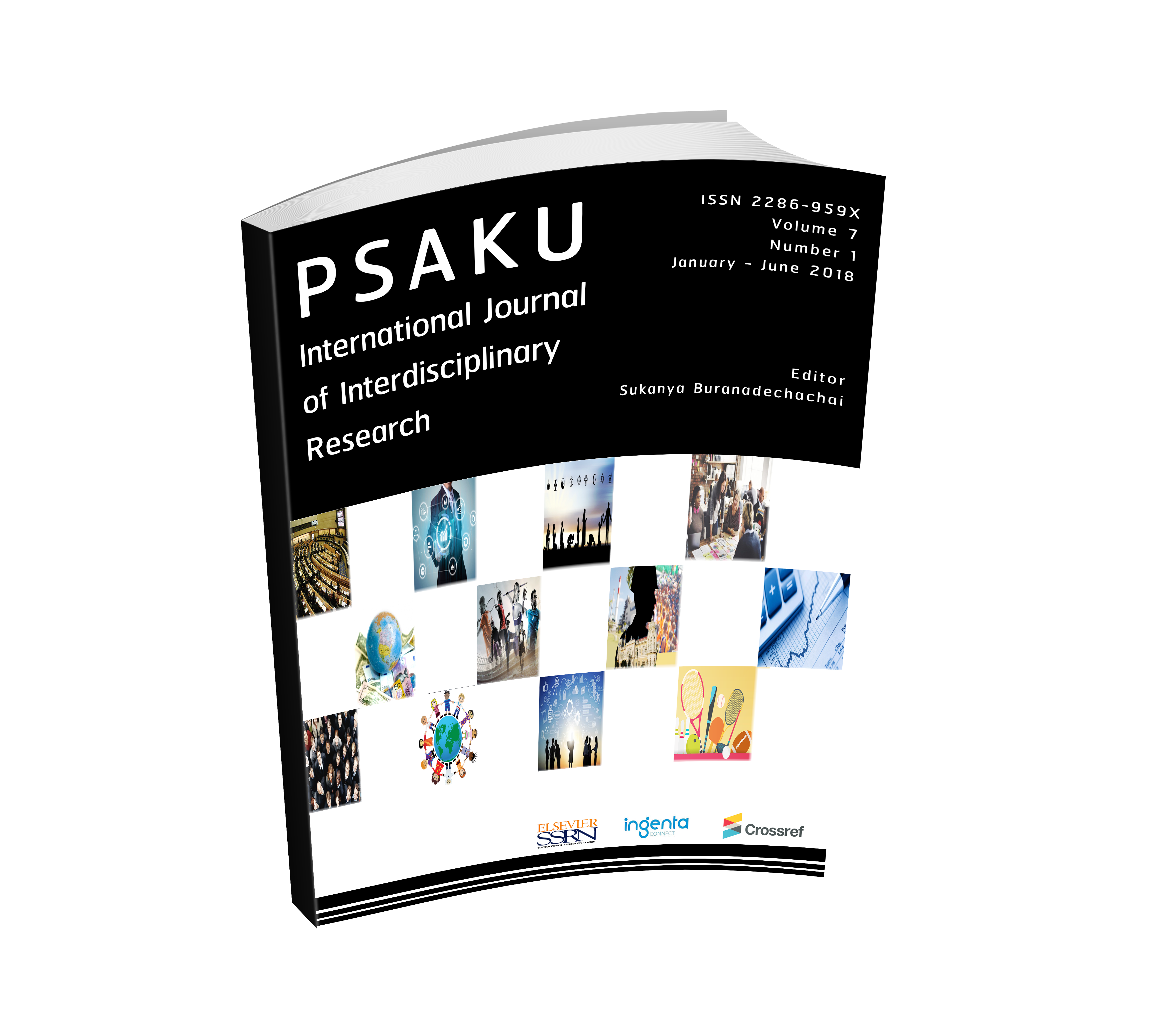Understanding the Effect of Using Music Therapy Programme without Music Therapists for Seniors with Early Stage of Dementia in Thailand: A Preliminary Study
Keywords:
Dementia, Music Therapy, Cognitive Function, Memory, Rehabilitation, Aging societyAbstract
This article is written by the authors after studying the National Bureau of Statistics’ data about the number of the elderly in Thailand. It indicated the fast growing number of the Thai seniors as seen from their proportion to the entire population. In 2014, the number of the old people increased to 10 million, representing 14.9%. Of them, 5-8% suffered dementia, and more number when age climbed up. Treatment of dementia is available in two forms. The first is by medication for relief but no cure and at high cost when compared with the population’s income base. The second requires no medicine such as by brain management and the correct and closely care. However, the authors found that music therapy, a non-drug treatment, was a more interesting alternative thanks to its positive results shown by research abroad. As the social context of Thailand where the poor patients live in remote areas and thus are distant from music therapists hence encouraged the authors to present the ready-touse musical therapeutic package as a means to slow down dementia. The package combines meditation, music and bodily movements into a series of activities for 10 weeks to complete
Downloads












.png)


